BGE in Photos: SMP Students Make a Difference in the Community
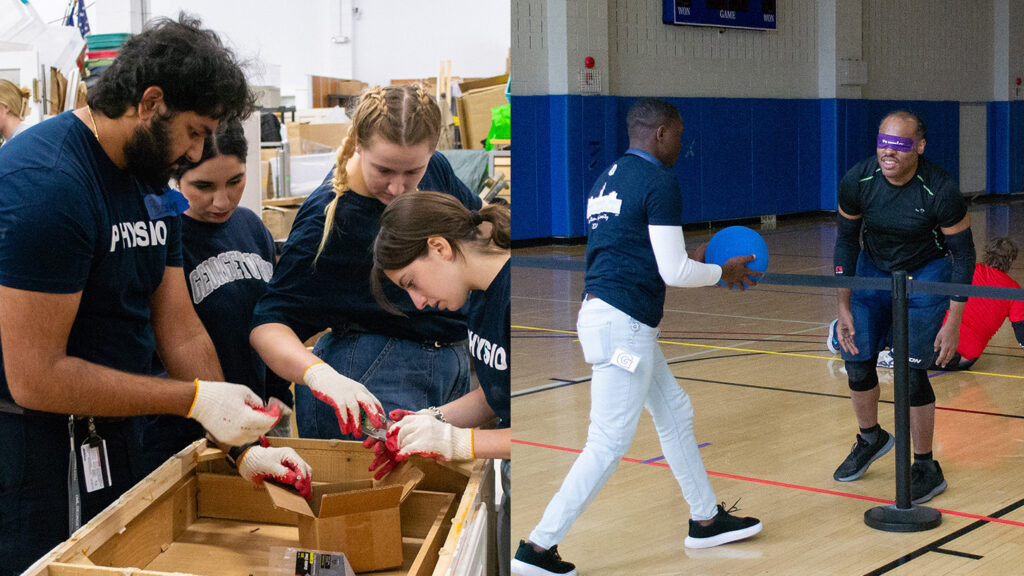
BGE’s Special Master’s Program in Physiology (SMP) is an intensive pre-medical program that allows students to build technical knowledge and study skills for success med school and beyond. Students can also round out their SMP experience with service activities that expose them to some of the communities and health challenges they will meet as professionals.
Students who choose the SMP’s Georgetown Downtown Campus track participate in community service activities throughout the program. BGE tagged along with Physios volunteering at the Habitat for Humanity ReStore in Alexandria and at a goalball practice with blind athletes to learn how these experiences influence our future physicians.
Habitat for Humanity ReStore
Ten students drove to suburban Alexandria, Virginia, on a morning in December to work at the Habitat for Humanity ReStore. ReStores supplement Habitat’s famous home-building projects: The stores accept donations of furniture and other home goods, reselling them to raise money for the organization.
Students were assigned to help process donations at the back of the cavernous store. They reassembled cabinets, measured and priced windows, and helped organize the items to be sold.
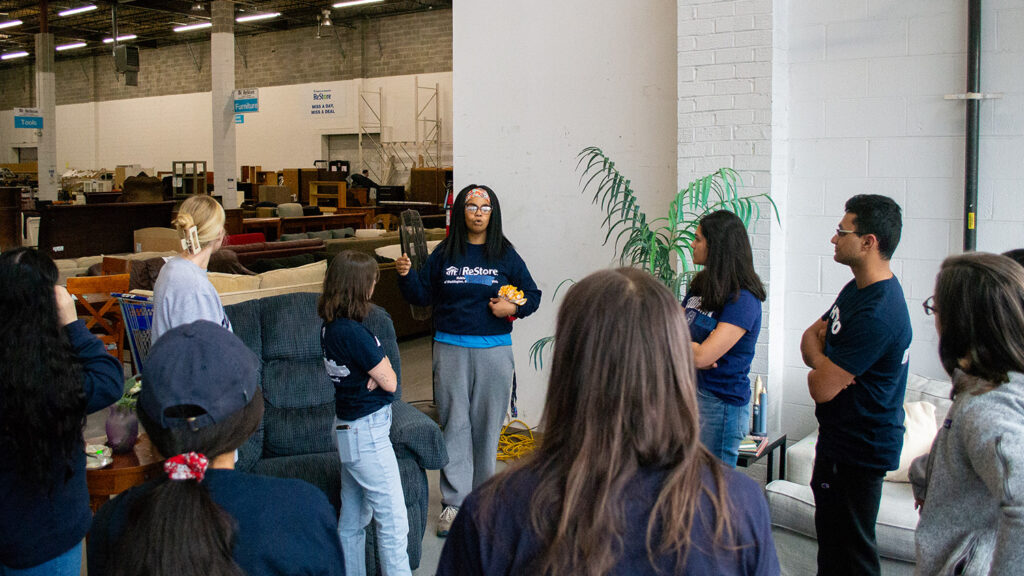
Lisa Mobley, manager of the Habitat for Humanity ReStore in Alexandria, gives SMP volunteers a briefing at the start of the day.
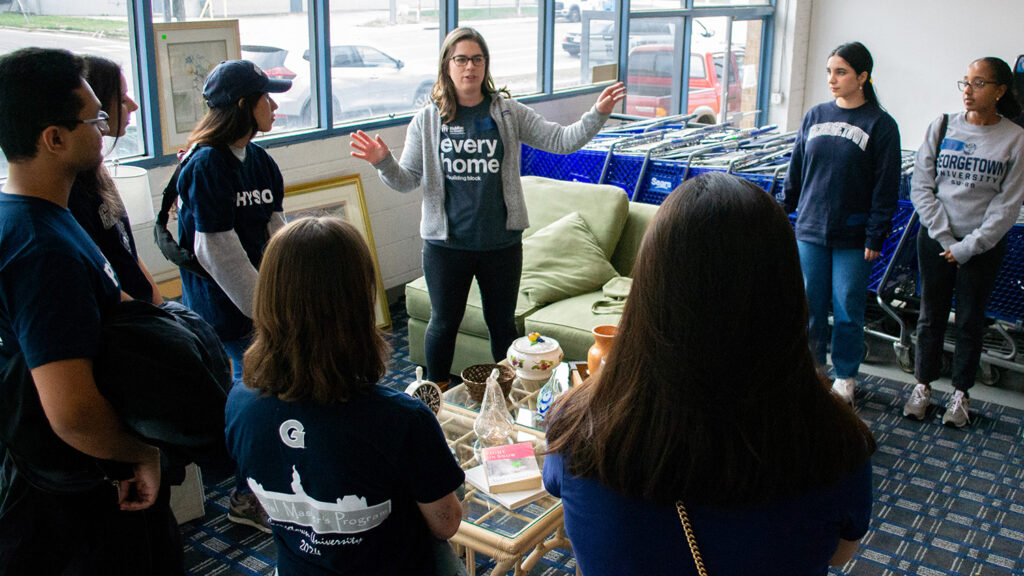
Habitat for Humanity volunteer coordinator Rachel Jones speaks to the SMP students.
“I was just really impressed by [SMP students’] interest in the mission and serving. … We want you all to come back all the time if you can!”
Rachel Jones, Volunteer & Community Engagement Manager, Habitat for Humanity of Washington, D.C. & Northern Virginia
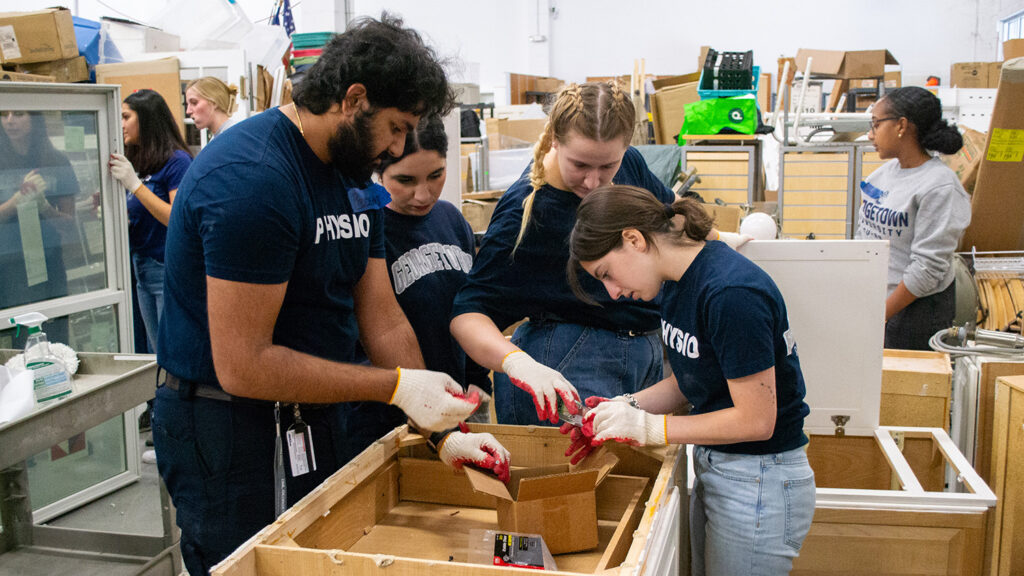
Students work to repair donated cabinets at the back of the store.
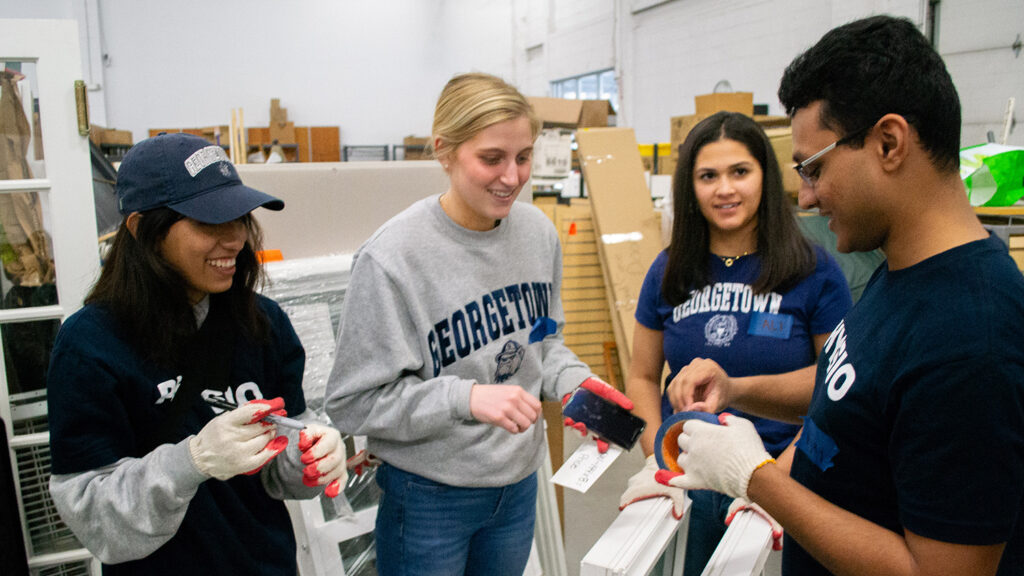
Students prepare a price sticker for a donated window.
“I had fun working with my classmates on our project. I was very impressed by the scale of the ReStore and the variety of items they had for sale. It made me appreciate the generosity of those in the community that donated items for others, and also those who work in the ReStore.”
Marissa Dreger, SMP student
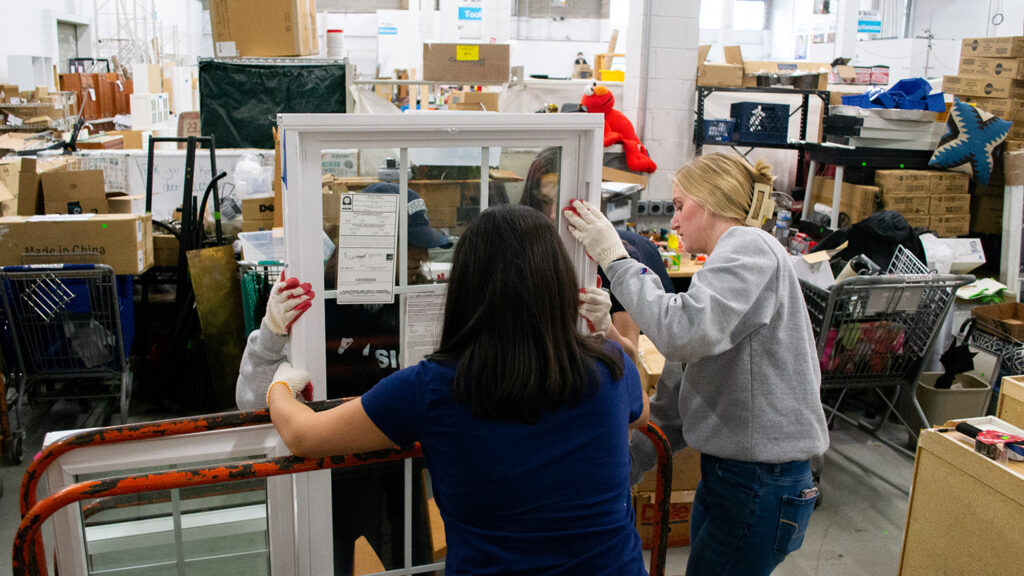
Students lift a window onto a cart to move to the front of the store.
“I think it’s a great opportunity to know about more resources. … As a physician you’re going to encounter people from different backgrounds, and you may encounter people who are facing difficulties in their lives – not necessarily in the medical aspect. … It could affect them if they’re facing any economic situation, and [if] you know this opportunity, I think it’s great that you could bring it up and tell them, ‘Hey, I know this organization that does this.’ “
Katherine Chavez Carpio, SMP student
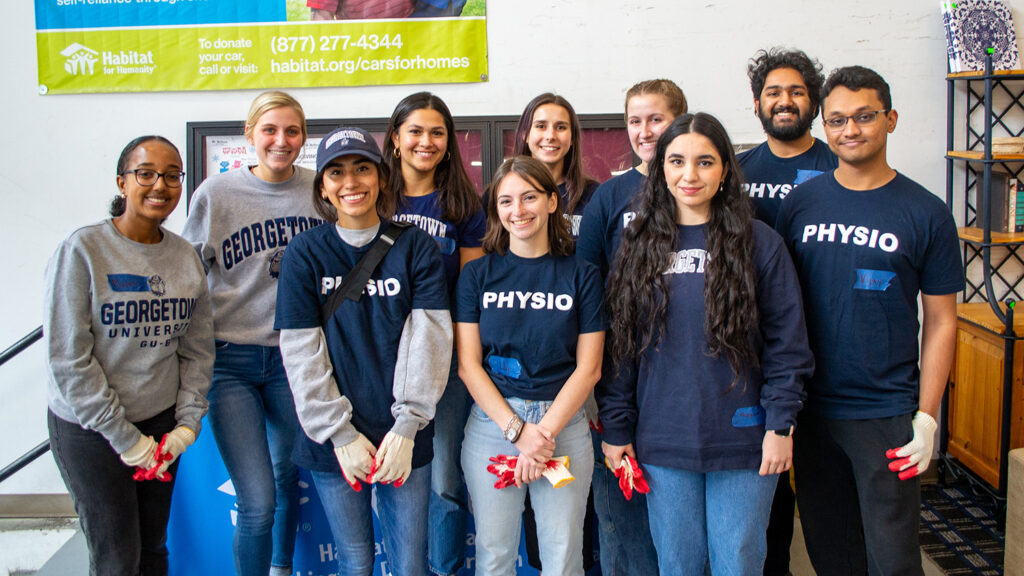
SMP students pose together at the Habitat for Humanity ReStore.
Goalball with Metro Washington Association of Blind Athletes
In addition to supporting groups such as Habitat for Humanity that respond to economic inequality, SMP students also work with disability organizations around D.C. Richa Kulkarni and Aaron Yengbie volunteered at a goalball practice hosted by the Metro Washington Association of Blind Athletes at the Columbia Heights Community Center. The two worked with MWABA members and volunteers from around the DMV to set up the court and corral stray balls during play.
Goalball is a three-on-three sport designed for visually impaired athletes. Teams take turns pitching a ball with bells inside across the court, attempting to get it past the opposition to score.
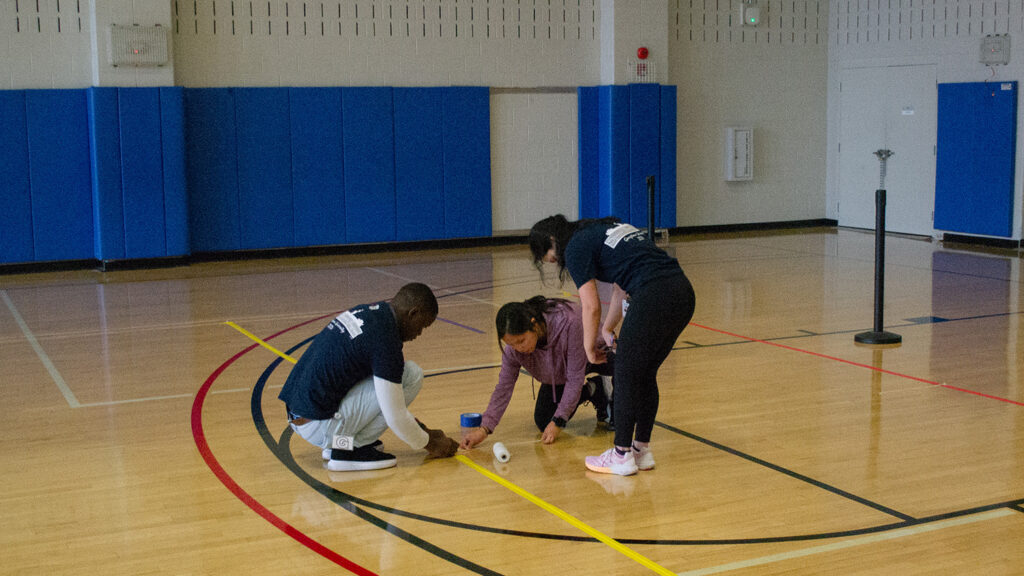
SMP students Aaron Yengbie and Richa Kulkarni, in blue shirts, work with a fellow volunteer to lay down tape marking the front of the orientation area, where one of the goalball teams will stand during play. Goalball courts use lines of tape over string on the floor to create boundaries that can be seen and felt.
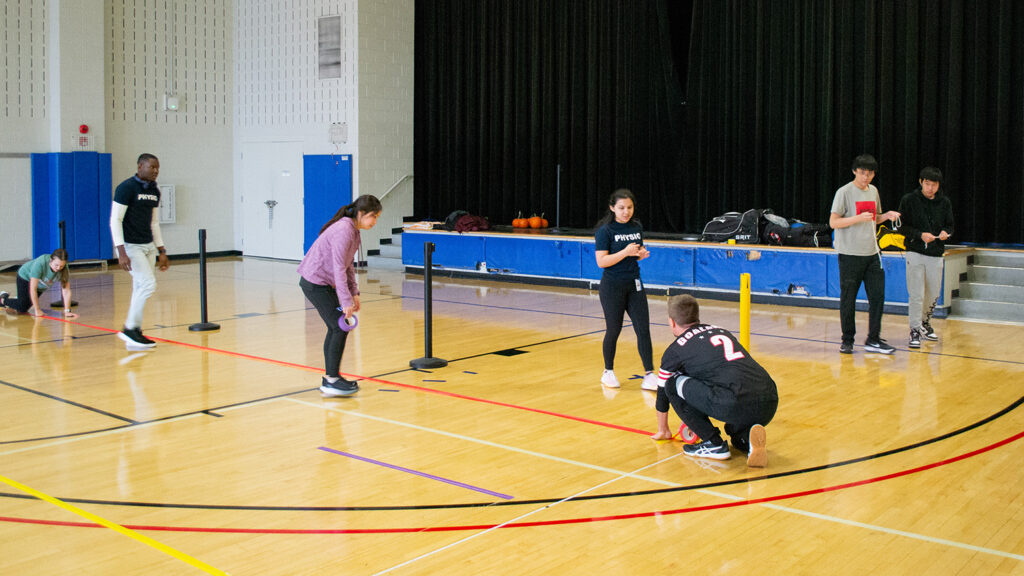
Kulkarni and Yengbie help mark off the goal line at one end of the court.
“Speaking with a few goalball players revealed that while the sport was their initial draw, finding a supportive community that allows them to be vibrant was important. For me these volunteer experiences are more than resume entries; they underscore the essence of being a healthcare professional and reinforce the importance of service, empathy, and community.”
Aaron Yengbie, SMP student
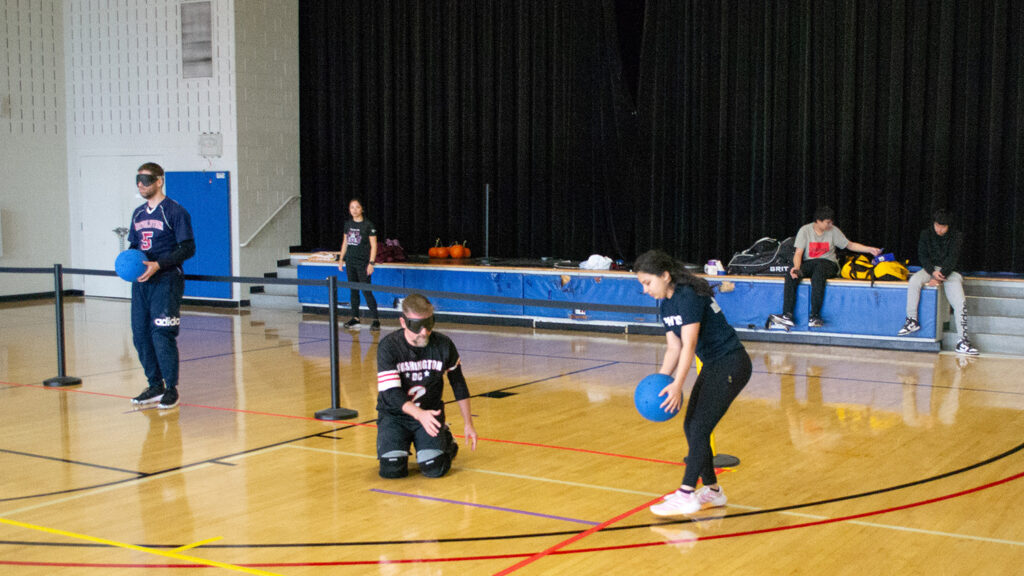
Kulkarni stands on the sideline to return a ball to Kurt Sloop, goalball organizer, during warmups. All players wear eyeshades so that sighted or partially sighted players don’t have an advantage.
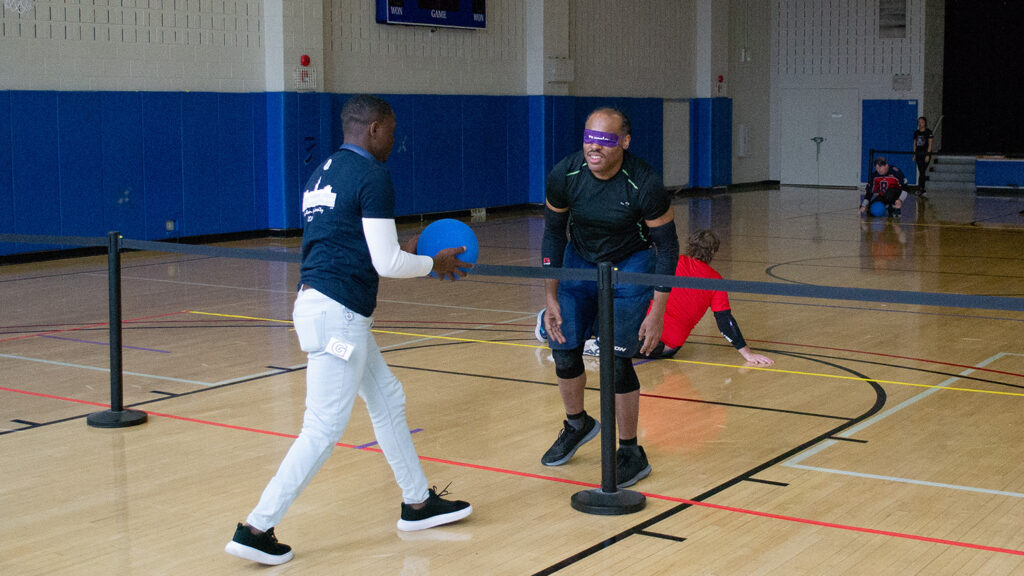
Yengbie hands a ball to a goalball player during a match.
“These experiences embody the holistic approach of the SMP, that being a doctor involves more than just diagnosing and prescribing, it’s about treating a whole person.”
Aaron Yengbie, SMP student
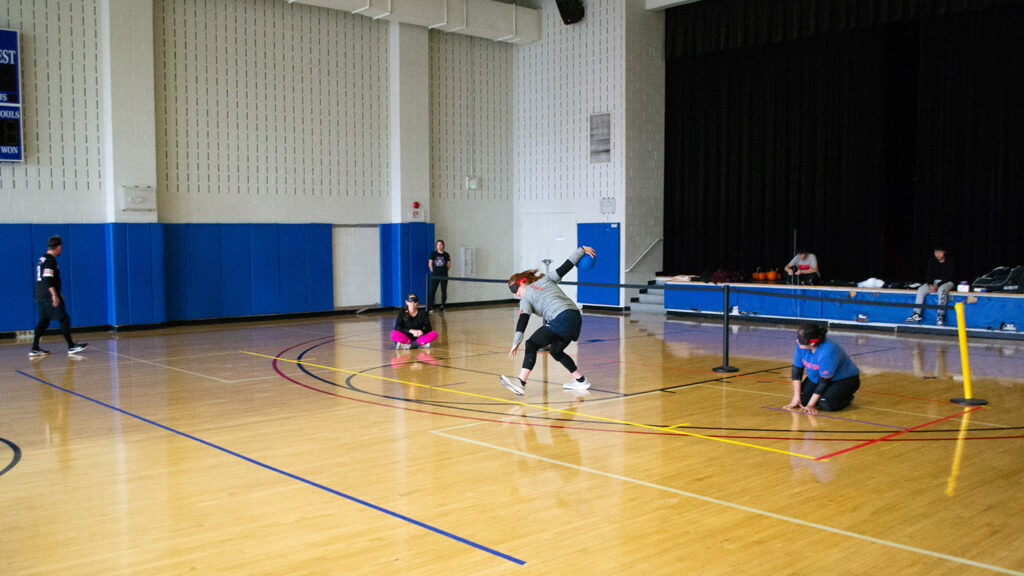
A goalball player winds up to throw the ball.
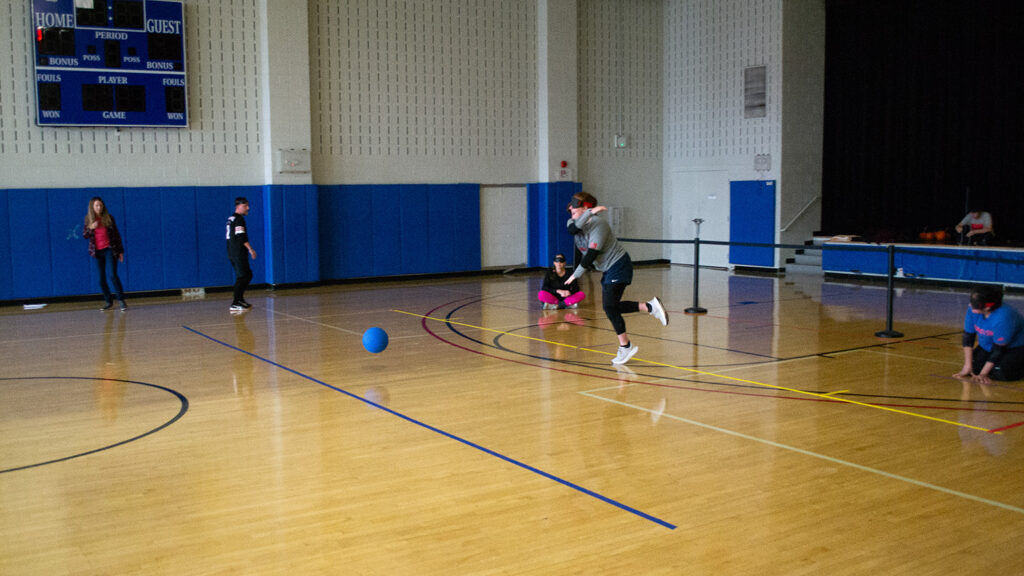
A goalball player throws the ball down the court.
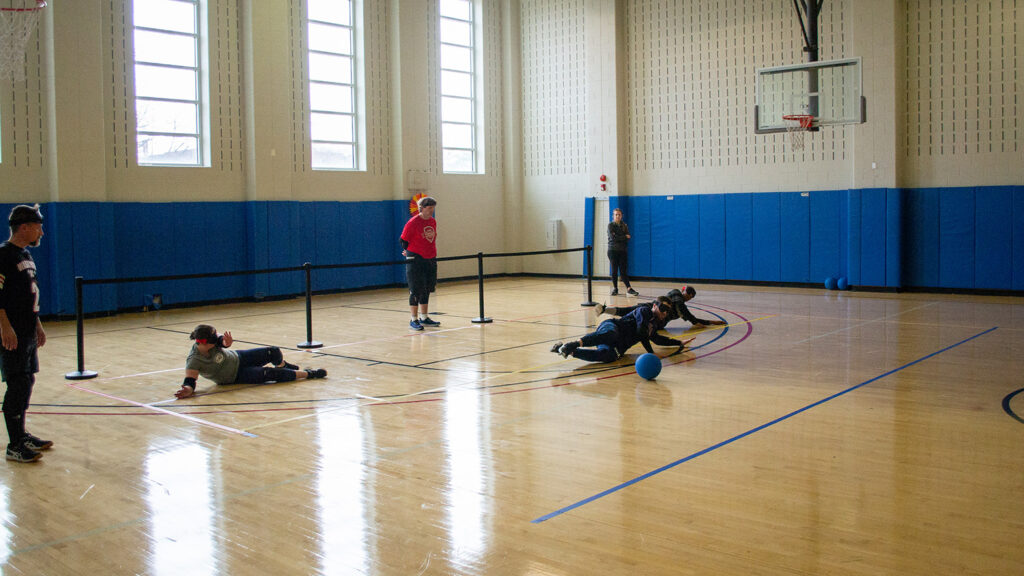
A goalball player stretches out on the floor to block the incoming ball with his leg. Players typically lie down to defend as much of the goal as possible.
“Part of [MWABA’s] mission as an organization is for people to see blind people fully participating in activities and helping to normalize our presence in all of those spaces. … It’s fun when [volunteers] take an interest.”
Kurt Sloop, GoalBall organizer and Treasurer, Metro Washington Association of Blind Athletes
To learn more about the Special Master’s Program and students’ volunteer work, visit the SMP website or read GUMC’s story: “Historic Master’s Program in Physiology Prepares Students for Medical School While Teaching the Value of Community Service”
- Tagged
- Special Master's Program
